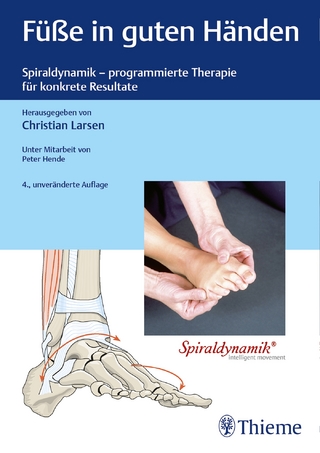
Exosomes and MicroRNAs in Biomedical Science
Morgan & Claypool Publishers (Verlag)
978-1-63639-347-6 (ISBN)
MicroRNAs (miRNAs) are a member of the family of non-coding RNA molecules, and consist of small conserved sequences between 19–25 nucleotides in length that are responsible for regulating many cellular functions by affecting a wide range of messenger RNAs in a sequence specific manner. Fundamental biological processes like cell proliferation and growth, stress resistance, tumorigenesis, fat metabolism, and neural development have all been shown to be governed by miRNAs. miRNAs carry out the post-transcriptional silencing of gene expression via targeting the 30-untranslated region (UTR) of the complementary mRNA sequence. The dysregulation of the expression levels of various miRNAs is typical of tumor cells, and has been associated with tumor progression and poor prognosis. Many miRNAs are up-regulated in cancer, where they can silence tumor suppressor genes such as apoptosis and immune response associated genes. Therefore, it is possible to profile the expression levels of miRNAs as biomarkers, in order to diagnose cancer and noncancerous diseases. Moreover, cancer detection in the early stages is crucial in clinical situations. Characterization of miRNAs in serum, plasma, and other bodily fluids, and understanding their stability against RNase degradation, is important to assess their suitability as biomarkers and diagnostic tools. Exosomes play an important role in inter-cellular communications, and these nanosized particles have various functions in diverse physiological pathways, in normal as well as abnormal cells. Exosomes can carry diverse cargos such as mRNAs, miRNAs, and proteins that transfer information between donor and recipient cells. Furthermore, uptake of exosomes and their cargos may promote or suppress various molecular and cellular pathways, which alter the cellular behavior. Many reports have discussed the role of exosomes released from cancer cells on the progression of cancer at various stages. Exosomes and their cargos may affect the growth of the tumor, metastasis, drug resistance, immune system function, as well as angiogenesis. Therefore, exosomes have been explored as diagnostic biomarkers in many cancers. Moreover, exosomes can be used as biological vehicles to deliver different drugs and agents like doxorubicin (DOX), miRNAs, and siRNAs. The present book covers the role of exosomes and micro-RNAs in the pathogenesis and treatment of various diseases.
Hamed Mirzaei, Ph.D. is an Assistant Professor of Medical Biotechnology at Kashan University of Medical Sciences, Kashan, Iran. He works on Exosomes and Non-coding RNAs and has published more than 150 articles in these fields. Neda Rahimian, M.D. is an Assistant Professor of Internal Medicine at Iran University of Medical Sciences, Tehran, Iran. She has published various articles on non-coding RNAs. Hamid Reza Mirzaei, Ph.D. is an Assistant Professor of Medical Immunology at Tehran University of Medical Sciences, Tehran, Iran. He works on various immunotherapies especially CAR T-cell therapy in the treatment of different cancers. He has published several articles in the cancer field. Javid Sadri Nahand,Ph.D. is an Assistant Professor of Virology at Tabriz University of Medical Sciences, Tabriz, Iran. He works on the role of non-coding RNAs in viral infections. Michael R. Hamblin, Ph.D. was a Principal Investigator at the Wellman Center for Photomedicine, Massachusetts General Hospital, an Associate Professor of Dermatology, at Harvard Medical School, and is now a Distinguished Visiting Professor at the University of Johannesburg. He has published over 700 peer-reviewed papers and 25 books.
MicroRNA Biogenesis and Function
MicroRNAs in Cancer
MicroRNAs in Non-Malignant Diseases
MicroRNAs in Biomarkers
Exosomes
Exosomes and Cancer
Exosomes and Non-Cancer Diseases
Role of Exosomes in the Treatment of Diseases
Authors' Biographies
| Erscheinungsdatum | 28.04.2022 |
|---|---|
| Reihe/Serie | Synthesis Lectures on Biomedical Engineering |
| Verlagsort | San Rafael |
| Sprache | englisch |
| Maße | 152 x 229 mm |
| Gewicht | 333 g |
| Themenwelt | Medizin / Pharmazie ► Physiotherapie / Ergotherapie ► Orthopädie |
| Technik ► Maschinenbau | |
| Technik ► Medizintechnik | |
| Technik ► Umwelttechnik / Biotechnologie | |
| ISBN-10 | 1-63639-347-0 / 1636393470 |
| ISBN-13 | 978-1-63639-347-6 / 9781636393476 |
| Zustand | Neuware |
| Haben Sie eine Frage zum Produkt? |
aus dem Bereich


